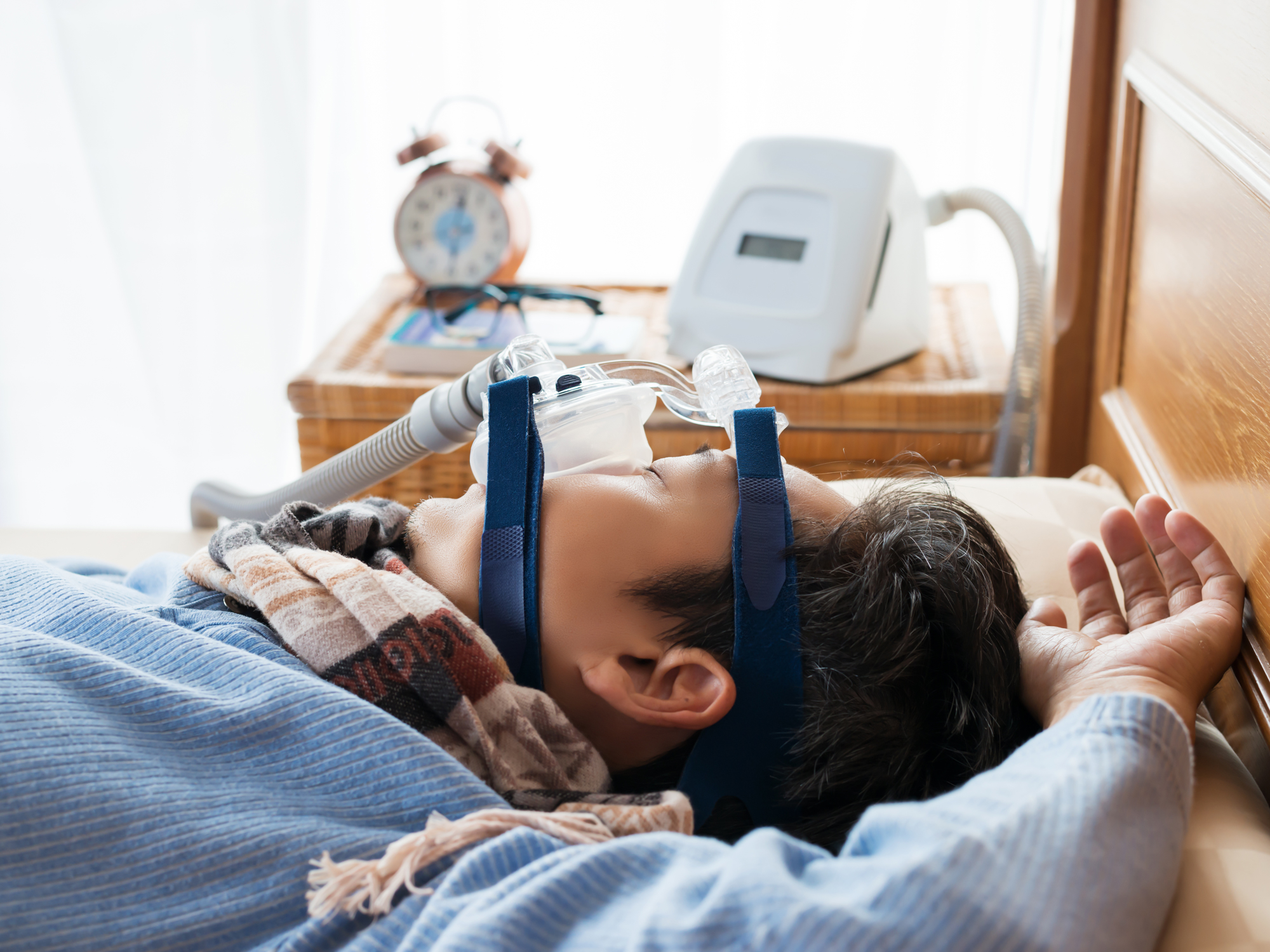Get Easy Health Digest™ in your inbox and don’t miss a thing when you subscribe today. Plus, get the free bonus report, Mother Nature’s Tips, Tricks and Remedies for Cholesterol, Blood Pressure & Blood Sugar as my way of saying welcome to the community!
Why a CPAP machine could save your brain

Sleep apnea sufferers hate their CPAP machine. And for good reason…
CPAP machines are loud, uncomfortable and can even cause minor side effects, like dry eyes and skin problems.
But if you have sleep apnea, you better learn to love your CPAP machine (or find an effective alternative), because sleep apnea is dangerous.
It increases your risk of high blood pressure, heart attack, atrial fibrillation, stroke, type 2 diabetes, and nonalcoholic fatty liver disease.
And then, of course, there’s Alzheimer’s…
Recent research shows that sleep apnea increases the risk of this serious brain condition too. And Mayo Clinic researchers just figured out why…
Sleep apnea sufferers have more brain proteins associated with Alzheimer’s
A new study from the Mayo Clinic revealed that people with sleep apnea have more tau proteins in their brains.
In case you don’t know, tau proteins can accumulate in the brain eventually forming tangles that are found in the brains of people with Alzheimer’s.
The study included 288 people who were 65 or older and didn’t show any signs of cognitive impairment. Researchers asked study participants’ partners whether they’d witnessed sleep apnea episodes where their partner stopped breathing. Researchers also performed positron emission tomography (PET) on participants’ brains.
There were 43 participants whose partners witnessed sleep apnea episodes where they stopped breathing. And these people had 4.5 percent more tau proteins in their brains.
“Our research results raise the possibility that sleep apnea affects tau accumulation,” said study author Diego Z. Carvalho, MD. “But it’s also possible that higher levels of tau in other regions may predispose a person to sleep apnea, so longer studies are now needed to solve this chicken and egg problem.”
Finding a sleep apnea treatment that works for you
We already know from other studies that people with sleep apnea at more at risk for dementia. So, let’s say that sleep apnea does cause more tau proteins to accumulate in your brain…
Then treating your sleep apnea could be the best way to save your brain from Alzheimer’s.
Related: Natural help for sleep apnea
If you’re not a fan of the CPAP machine, there are ways to make it more tolerable. A white noise machine can help drown out the noise of a CPAP machine. Finding the perfect CPAP mask can prevent many common complaints too. If the mask fits live a glove, you’ll be more comfortable and less likely to experience annoying side effects, which are usually caused by mask leaks.
But if you really can’t stand the CPAP machine, there are alternatives. If you’re overweight, weight loss can be an effective way to treat sleep apnea. For some people, that’s all it takes to get rid of sleep apnea completely.
Dental devices like mouth guards can also help with sleep apnea. They keep your jaw forward, so your airway stays open. You can also try something known as positional therapy, which uses devices that prevent you from turning onto your back while you sleep since that’s when sleep apnea’s most likely to occur.
These are just a few of the treatment options for sleep apnea besides a CPAP machine. Whatever you choose, get your sleep apnea under control ASAP before it does serious damage to your brain.
Editor’s note: One of the biggest dangers to anyone’s brain is a drug that 38 million Americans take every single day. It robs the brain of an essential nutrient required for optimal brain health. And it steals memories. Are you taking it? Click here to find out!
Sources:
- Sleep apnea may be linked to higher levels of Alzheimer’s biomarker in brain — MedicalXpress
- Sleep Apnea — Mayo Clinic
- Mayo Clinic lists 10 common problems with CPAP. I HATE CPAP offers Oral Appliances that Avoid all of these CommonCPAP Problems — Sleep and Health Journal
- 5 Alternative Sleep Apnea Treatment Options — American Association of Sleep Technologists
- CPAP Alternatives — American Sleep Association













